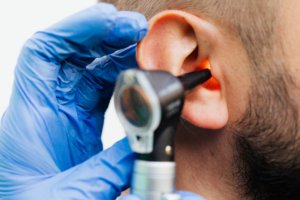
The World Health Organization estimates show that approximately 1.5 billion people have hearing loss globally and more than a billion young people are at risk of hearing loss. According to the United States National Institutes of Health, approximately 90% of those with hearing loss are affected by sensorineural hearing loss (SNHL). Noise exposure is difficult to avoid in modern society and approximately 41 million people in the U.S. may have SNHL.
Unlike other medical conditions, hearing loss is often met with irritation, annoyance and cruel jokes. It’s a meme when grandpa can’t hear what you’re saying and offers an answer different than the question posed. Eye rolls and smirks are commonplace. This wouldn’t be the case for someone who is losing their vision or suffers other maladies.
Growing up in a family with members that had various degrees of hearing loss, you can see the toll it takes on the person and its impact on close relatives and friends. Conversations become uncomfortable. The person with the hearing impairment feels awkward and left out. Oftentimes, they simply give up and withdraw from social activities. This further isolates the person, adding mental health issues on top of the problem. The withdrawal leads to feelings of loneliness, isolation and frustrations. Studies show that the left untreated and remaining outside of social engagements, there may be a higher chance of having dementia or depression.
David Lucchino, Frequency Therapeutics cofounder and CEO, is a life sciences entrepreneur with nearly two decades of executive leadership experience. He played an integral role in launching, building and operating several successful companies in both the biotech and medical device industries.
He’s sympathetic to the plight, as he grew up with his own challenges. Lucchino is dyslexic. He had to overcome childhood dyslexia, in a time when not much was known about it. During that period, teachers were not as focused on the issue. Many educators would contend that a person with dyslexia was either lazy, acting up or not too bright. In grade school, Lucchino’s teachers constantly embarrassed him in front of his classmates for failing his spelling tests. It led him to question his own intelligence. Those were tough times for him, but they taught a young Lucchino the power of tenacity and perseverance.
With this background, it seems natural that he would fight for overlooked people who are marginalized from society, due to their challenges. Despite the odds, he learned how to cope and overcome, becoming a leading biopharma entrepreneur, working to develop the world’s first therapeutic to reverse hearing loss.
In 2014, Lucchino, along with Professor Robert Langer of the Massachusetts Institute of Technology and cofounder of Moderna, along with others, started Frequency Therapeutics. The goal was to pioneer a novel approach to regenerative medicine with a lead program aimed at restoring hearing for the most common form of hearing loss. Frequency is leading a new category of regenerative medicine—one that uses small molecules to “activate” a person’s innate regenerative potential.


